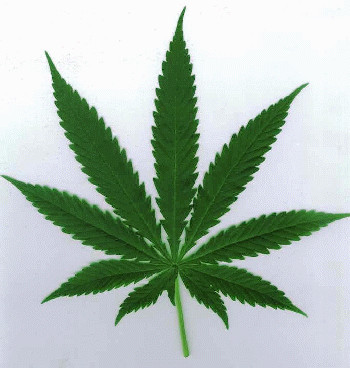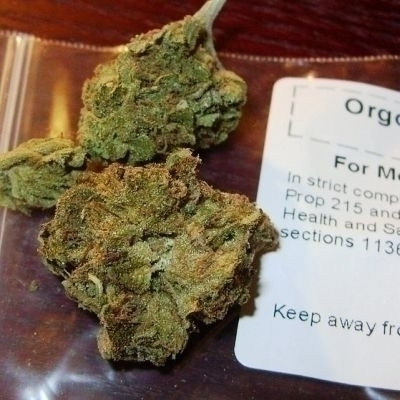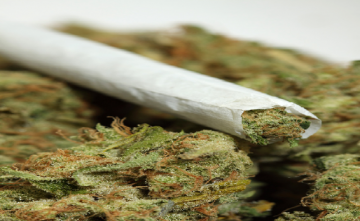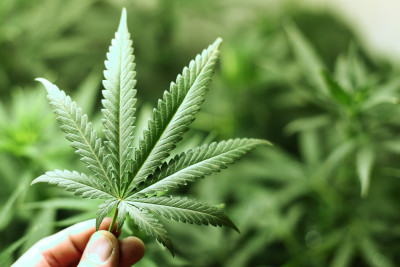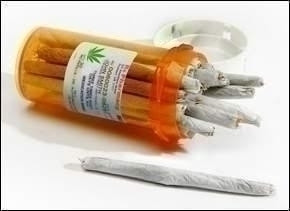Guest MINDSETTER™ Robert Paquin: Regulating and Taxing Marijuana Will Strengthen Our Economy
Thursday, April 09, 2015
The economic challenges facing Rhode Island are real and deserve serious attention. During the current legislative session, Democrats and Republicans must work together and act boldly to improve our economy and close the looming budget deficit. Regulating and taxing marijuana like alcohol is one of the most sensible and straightforward ideas on the table. It is not only a politically feasible proposal with bi-partisan support, but also something that is in the best long-term economic interests of our state.
It is obvious that marijuana prohibition is on the way out in the United States, and it is only a matter of time before all of New England will jump on the bandwagon. A recent RAND Corporation report on marijuana policy emphasized that whichever state goes first will have a “first-mover” advantage over neighboring states, which will lead to a greater economic windfall from the regional market that can last as long as 30 years.
If Rhode Island approves the use and sale of marijuana before its neighbors, businesses and start-ups eager to get in on the ground floor of a new regional economy will be more likely to headquarter their operations here, which means more jobs and opportunities for our citizens.
GET THE LATEST BREAKING NEWS HERE -- SIGN UP FOR GOLOCAL FREE DAILY EBLASTWe can already see here in Rhode Island that the sky does not fall when we allow adults to purchase marijuana from licensed, regulated stores. Our three medical marijuana compassion centers are running smoothly and showing us how legitimate marijuana businesses can co-exist within the community and create good middle-class jobs.
Study after study has shown marijuana is objectively less harmful to the consumer and society than alcohol, so it defies common sense to punish adults who choose the safer option. Rhode Islanders are tired of seeing their tax dollars wasted by the government, and few things seem as pointless as continuing to enforce a prohibitionist policy against marijuana that clearly does not work. By regulating marijuana, we will see significant savings for law enforcement costs, and we’ll be in a great position to replace the underground criminal market with legitimate, tax-paying businesses that obey the law.
Colorado, which began allowing marijuana sales to adults on January 1, 2014, shows us what a post-prohibition world looks like. According to Business Insider, Colorado has perhaps the fastest-growing economy in the country. Crime in Denver, where most marijuana stores are located, has not dramatically increased. Colorado’s tourism industry is stronger than ever. Overall, even traffic fatalities are down, and teen marijuana use has not increased.
By the end of 2014, Colorado had issued roughly 16,000 employee badges to workers who directly handle marijuana products. That figure does not include many indirect, ancillary jobs for attorneys, building contractors, consultants, electricians, accountants, security personnel, and so on. Rhode Island has about one-fifth of Colorado’s population, so it is not unreasonable to estimate that our state could potentially create a few thousand new jobs by regulating marijuana like alcohol. If we “wait and see” too much longer, we will watch other states create jobs and attract new businesses while we miss the boat.
Rhode Island will soon have to confront a significant loss in tax revenue from casinos opening in Massachusetts. Becoming the first state in New England to regulate and tax marijuana would help correct that imbalance. Estimates of potential tax revenue for marijuana under the structure outlined in the proposed Marijuana Regulation, Control, and Taxation Act range from $21 million to $80 million annually, with the best guess being approximately $58 million a year from sales and excise taxes once the system is fully ramped up. As the RAND Corporation report underscores, the actual revenue number will likely be closer to the higher end if we enact legislation in 2015 and get the “first-mover” advantage in the region.
Rhode Island’s economy has been crippled by a “nanny state” mentality, and the only thing holding us back from seizing this tremendous opportunity to regulate marijuana is a small but vocal minority who cling to unfounded fears about marijuana use. The truth is that the vast majority of marijuana consumers are responsible, tax-paying citizens, and marijuana certainly causes far less harm than alcohol. We cannot afford to allow antiquated fears and unproven prejudices to hold our state back from economic growth.
It is time for the members of the General Assembly to study and ultimately pass the Marijuana Regulation, Control, and Taxation Act this session. Otherwise, it will be to our chagrin when our neighbors move forward while we fall further behind.
Robert A. Paquin, III is the former executive director of the Rhode Island Republican Party and an advocate for merging conservative and libertarian principles to better Rhode Island. He resides in North Kingstown where he is currently a freelance political consultant.
Related Slideshow: Marijuana Use in the New England States
According to data collected by the Substance Abuse & Mental Health Services Administration, New Englanders are among the nation's top marijuana users in the country. See how the indivdual states compare in the slides below:
Related Articles
- Personality Test of Marijuana Users Reveals Surprising Results
- Marijuana Tax Bill Presented to Senate Committee
- Leonardo Angiulo: Further Refining the Investigation of Marijuana Offenses
- Synthetic Marijuana: Is it the Next Heroin?
- Can Medical Marijuana Help Stop the Opiate Epidemic in RI?
- Obamacare Implications of Medical Marijuana in Rhode Island
- Marijuana Tax Has Bipartisan Support in RI
- State Report: Marijuana Tax + Bill Targets Prostitutes and Pimps
- Will New Findings on Marijuana Dangers Hurt Legalization Efforts?
- RI Hospital: Legalizing Med. Marijuana Does Not Increase Youth Use
- Marijuana Debate Evolves as New Advocacy Group Forms
- Regulate RI Seeks to Make Rhode Island the Next State to Regulate Marijuana Like Alcohol
- NEW: ACLU Files Suit Over Medical Marijuana Discrimination
- Lean Gov’t, Marijuana, and a Twin River Hotel: This Week at the State House
- Ben And Jerry’s Open to Marijuana Infused Ice Cream
- NEW: Massive Providence Fire Took Place at Marijuana Producers Association Building
- Marijuana Growing Facilities “Serious Concern,” Says RI Fire Marshal
- Does the Kinsley Ave Fire Help or Hurt Marijuana Legalization in RI?
- RI Lawmakers Introduce Marijuana Legalization Legislation
- Guest MINDSETTER Rep Scott Slater: Replace Illicit Marijuana Industry with Legitimate Businesses
- Guest MINDSETTER™ David Ellison: It is Time We End the Prohibition of Marijuana
- NEW: National Marijuana Advocate in RI for Legalization Forum
- Marijuana “Patient Vapor Lounge” to Open in Downtown Providence
- Marijuana “Vape Lounge” to Open in Downtown Providence on Saturday
- Guest MINDSETTER™ Robert Paquin: Regulating and Taxing Marijuana Will Strengthen Our Economy


